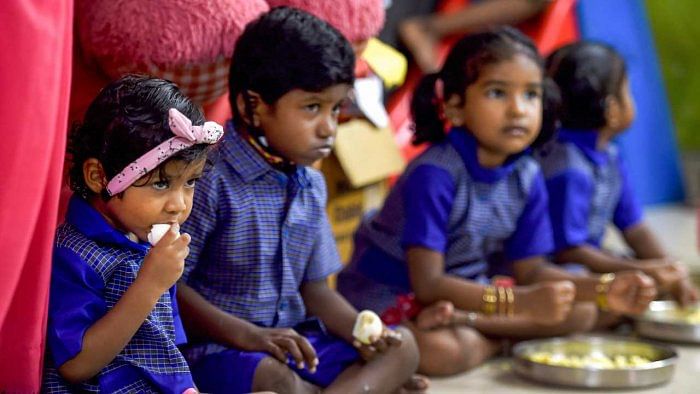

The Budget 2023 saw cuts in real terms for a number of social sector schemes, including in health and education. An analysis by the Centre for Budget Governance and Accountability showed that the combined share of 16 social sector ministries in the union budget came down from 24 per cent in 2022-23 to 21 per cent in 2023-24. One of the ministries that saw the sharpest cuts is the Ministry of Minority Affairs (MoMA) whose budgetary allocation this year is 38 per cent less than last year (a reduction of almost Rs. 2000 crores). Among the reductions are two schemes which provided scholarships to students from minority communities – the pre-matric scholarship for minorities and Maulana Azad National Fellowship (MANF) scheme. The MANF has been discontinued based on the argument that it overlaps with other national fellowship schemes such as the UGC’s JRF scheme, which the minority students can also apply for. On the other hand, in the case of the pre-matric scholarships, it has been made applicable only to students of class IX and X, as the Right to Education Act provides free and compulsory education to all children up to class VIII.
Despite having universal schemes, there is a need for additional special measures targeted towards marginalized groups in recognition of the barriers they face because of their social location. A number of studies show that in terms of both outcomes as well as opportunities those belonging to dalit and adivasi communities as well as minorities, especially Muslims, face a systematic disadvantage. For instance, school dropout rates are higher among girls, among children belonging to Dalit and minority communities.
Also Read | Stymieing Them Young
As a result of the pandemic and the economic slowdown, many find it even more difficult to afford basic health and education services. It is known that at times of crisis those belonging to marginalised communities are more vulnerable. The data from the most recent All India Survey on Higher Education (AISHE) reflect this in the case of minorities’ access to higher education. The number of Muslims enrolled in higher education has declined from 21 lakhs to 19.2 lakhs between 2019-20 and 2020-21, with their share in total enrolment declining from 5.5 per cent to 4.6 per cent. This decline also needs to be seen in the context of the enrolment in higher education among Muslims being low to begin with, given that their share in the population is around 15 per cent. The enrolment among other minorities also declined from 8.9 lakhs to 8.3 lakhs (2.3 per cent to 2 per cent of total enrolment). The overall enrolment in higher education has however increased during this same period from 38.5 lakhs to 41.4 lakhs. The special scholarships make an important contribution in allowing students to overcome their disadvantages and continue in higher education. In the case of school education as well, even though government schools are free, it is well known that there are many other expenses related to school education such as uniforms, stationery and so on.
Positive discrimination through reservation policies along with measures to incentivise and support vulnerable groups’ access to education are ways in which some of the structural inequities that exist in society can be addressed. For example, the provision of bicycles for high school girls, cash transfers to girls who complete school education, scholarships for SCs, STs, OBCs and minorities, setting up of special residential schools for those belonging to these communities and so on have been some of the initiatives that have been undertaken in different parts of the country. A dilution of these provisions based on the justification of there being general or universal schemes that everyone can take advantage of completely defies this logic. It is also a cause for concern that this is being done at a time when the need is probably more than even before.
(The writer teaches Economics at Dr. B R Ambedkar University, Delhi. The views are personal.)